Is Ron DeSantis the Republican best placed to take on Donald Trump?
Ron DeSantis has raised millions, enjoys sky high approval ratings, and is touted by Elon Musk to be US president. But is he tough enough for a tussle with Donald Trump?
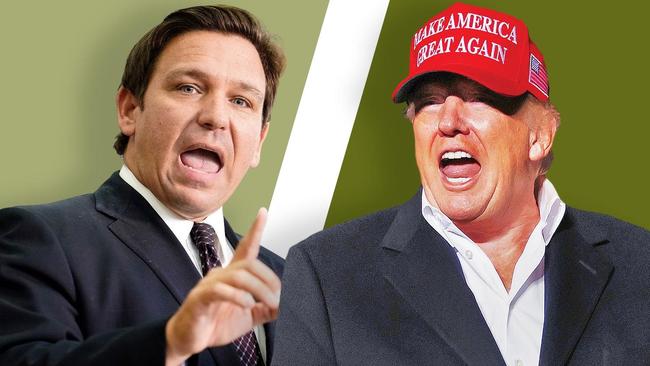
The world’s richest man has a knack for catching on to rising trends at the right moment. So when Elon Musk mentioned on Twitter last week that he had voted Republican for the first time and was then asked who he favoured for the next US presidential election his single word response echoed around the world: “DeSantis.”
I voted for Mayra Flores – first time I ever voted Republican.
— Elon Musk (@elonmusk) June 15, 2022
Massive red wave in 2022.
Ron DeSantis, 43, the governor of Florida, is not officially running for the highest office in the land yet but was already attracting plenty of attention – and raising tens of millions of dollars – from conservatives who believe he is the White House candidate best placed to build on Donald Trump’s MAGA (make America great again) agenda.
Now he may just have had the best week of his undeclared presidential campaign so far. As well as the publicity around the Musk tweet, the former president who stands in the way of his ambitions is facing a barrage of damning evidence from the select committee inquiry into the riot at the US Capitol last year.
Regardless of whether Trump’s base is listening, the carefully choreographed committee hearings have reminded swing voters of his role in stoking an insurrection, with testimony from his own inner circle that he was repeatedly told the election was lost but continued to stir up his supporters with false tales of fraud anyway.
“DeSantis may be helped in that he can say, ‘I’m Trump’s policies without Trump’s personality’,” said Larry Sabato, director of the University of Virginia centre for politics. DeSantis is expected to win re-election as governor in November, giving him a perfect platform from which to launch a 2024 presidential bid. His approval rating in Florida, a key election battleground, is five points ahead of where fellow Floridian Trump was when he won the state in 2020.
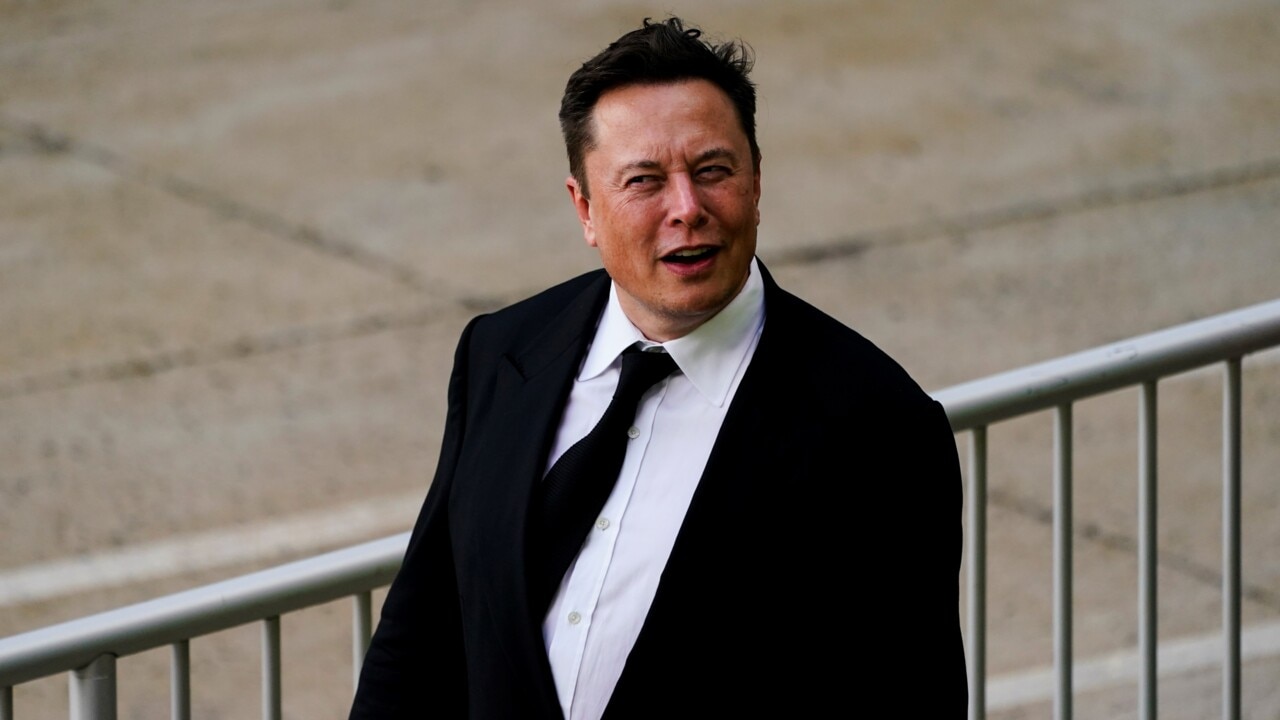
DeSantis has raised $US124m ($178m) for his re-election campaign already – twice as much as he needed to win the governor’s mansion four years ago. Last month he held a fundraising event in South Carolina, the “first in the south” primary state for the presidential nomination.
Trump, 76, is said to be dismissive about DeSantis privately, telling confidants “he has no personal charisma and has a dull personality”, according to the Axios website. It is a curiously similar insult to the one used against a former Florida governor, “low-energy” Jeb Bush, that helped knock him out of the 2016 primaries. Trump is said to be vexed that DeSantis has not made a public commitment not to run against him, as some others have.
Reports emerged this week that Trump was thinking of announcing his 2024 run in Tallahassee, Florida’s capital and seat of the DeSantis administration, in an effort to assert his dominance in the Sunshine State. It may be too late.
“The more I’ve seen of DeSantis, the more I’m convinced he is going to run regardless of what Trump does because he’s riding high, and it will be good timing because you can only serve two terms as governor of Florida,” Sabato said. “He would be in the middle of his second term for the presidential election. And if he says, ‘I’ll just wait until Trump serves another term’ he would be completely out of office and wouldn’t have the platform and would be forgotten to some extent.”
“I think there’s no doubt that DeSantis wants to be president,” said Jim Clark, a veteran observer of Florida politics at the University of Central Florida. “The trick for him is to build a national web of support and raise lots of money. But not go so far as to truly anger President Trump. It’s a tightrope act.”
The dynamic between the two men is fascinating because DeSantis arguably owes his job to Trump’s support. Trump, then president, was drawn to the little-known congressman because he kept popping up on Fox News to defend him and in December 2017, when DeSantis was a distant second place in the Republican primary race, Trump tweeted his support: “Congressman Ron DeSantis is a brilliant young leader . . . He loves our Country and is a true FIGHTER!”
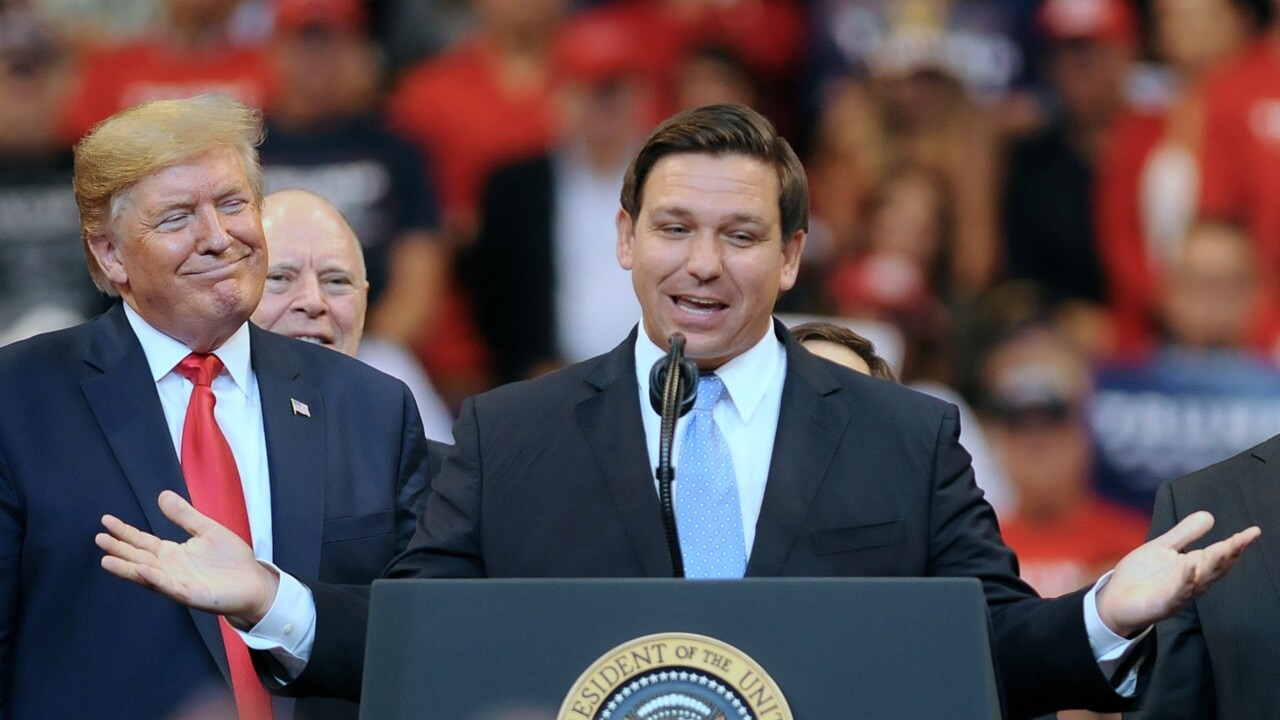
DeSantis famously campaigned with a TV advert showing him playing with building blocks with his toddler daughter, urging her to “build the wall” in a reference to Trump’s border wall, and teaching her to read by repeating the slogan “make America great again”.
As governor, however, he has reached beyond the MAGA base with a generous pay rise for teachers and big investments in environmental projects. Polls show him gaining ground among Republican voters nationally. At the Western Conservative Summit in Colorado this month, 71 per cent of activists put DeSantis among their preferred 2024 candidates, while 67.7 per cent included Trump; DeSantis also won a straw poll of Republicans in Wisconsin last month with 38 per cent to Trump’s 32 per cent.
A Chicago Sun Times/WBEZ poll among Illinois Republicans on Monday put Trump on 51 per cent and DeSantis second with 23 per cent. As is usually the case in similar polls, no other candidate came anywhere close, with former vice-president Mike Pence the next name on 6 per cent. Other Republicans are circling, however, and may be sniffing Trump’s blood in the water: Tom Cotton, 45, a senator from Arkansas, told donors last week he was prepared to run whether Trump was in or not and would make a final decision after November’s midterm elections. Few of the Republican presidential hopefuls are prepared to go for Trump’s jugular – they need his base in the general election and might end up landing the role of running mate.
DeSantis has played a careful game with the issue of election fraud, the acid test for Republicans of whether they stand by Trump.
In the early days after the 2020 election DeSantis backed Trump and jumped onto Fox News to lead calls for state votes to be reviewed. He has signed two “election integrity” bills into law to tighten up voter identification, prevent vote “harvesting” and mass postal voting, review voter rolls annually, end dropboxes and set up an Office of Election Crimes and Security which caused controversy because it includes new investigators dubbed “election police” by critics.
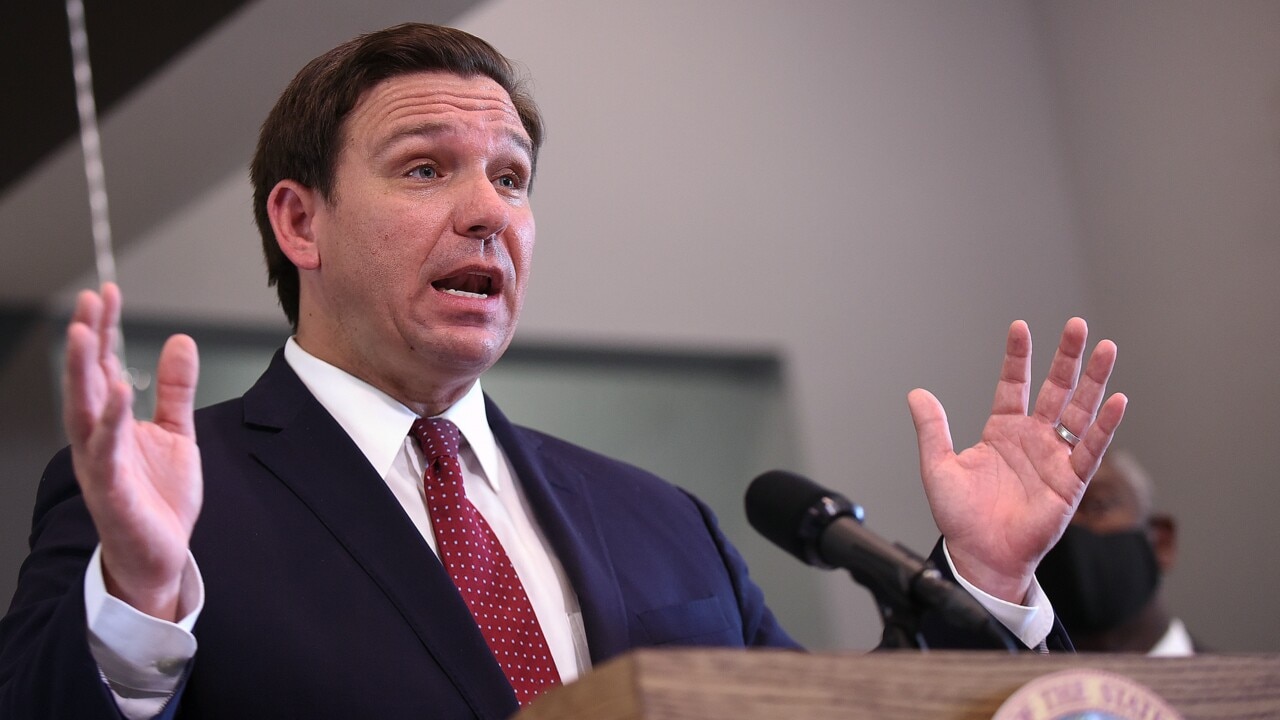
However, he avoided calls from ardent Trump supporters for an audit of the 2020 vote and shies away from repeating claims of fraud. When he sat alongside Joe Biden a year ago after the collapse of an apartment complex in Surfside, Florida, they discussed federal assistance and DeSantis addressed him politely as “Mr President” – something a true Trump loyalist would never say.
By June last year DeSantis was doing his best to avoid answering questions about whether he thought the election was rigged. When asked directly, DeSantis spoke about how the vote in Florida was well-run and reliable, concluding: “My message to Floridians is: your vote counts here, it’s important and don’t let anyone tell you that the vote doesn’t count.”
That was interpreted by some as an echo of murmurs inside the party that Trump’s incessant railing against fraud depressed Republican turnout in Georgia in Senate runoffs and contributed to the failure to hold either seat, handing control of the chamber to the Democrats.
Despite Trump’s reported sniping, DeSantis is actually anything but boring to conservative voters. He became well known nationally for resisting Covid lockdowns and mask mandates as well as for “anti-woke” legislation, most notably measures to restrict teaching of gender identity and sexual orientation at younger ages, labelled the “Don’t say gay” bill by critics.
When Biden held a Pride event at the White House on Wednesday, the main guest speaker was a gay student campaigner against the DeSantis legislation. Referring to the governor’s review of Walt Disney’s special tax status after the company spoke out against the bill, Biden said: “I don’t have to tell you about the ultra-MAGA agenda attacking families and our freedoms ... In Florida, going after Mickey Mouse, for God’s sake.”
DeSantis has set himself up as a national champion of traditional values. At a conservative Jewish event in New York last weekend he declared: “They can’t cancel me, I’m going to speak my mind ... We have said that the state of Florida is not going to be overrun by woke ideology. I think it’s a cancer, I think it will destroy this country if it’s able to get more of a foothold than it already has.”
Like Trump, the governor appears to have shrewd political instincts and revels in “triggering” liberal opponents but unlike the former president he typically favours deft provocations rather than overt insults.
This approach was on full display at a Florida State Guard event last week. Asked about the supportive tweet from Musk, who was born in Pretoria, South Africa, and is white, DeSantis found a way to wind up Democrats, who rely heavily on the black vote nationally, while playing down the significance of the tweet and keeping his true goals mysterious. To laughter from the crowd he declared: “I’m focused on 2022, but with Elon Musk, what I would say is, you know, I welcome support from African-Americans. What can I say?”
THE SUNDAY TIMES

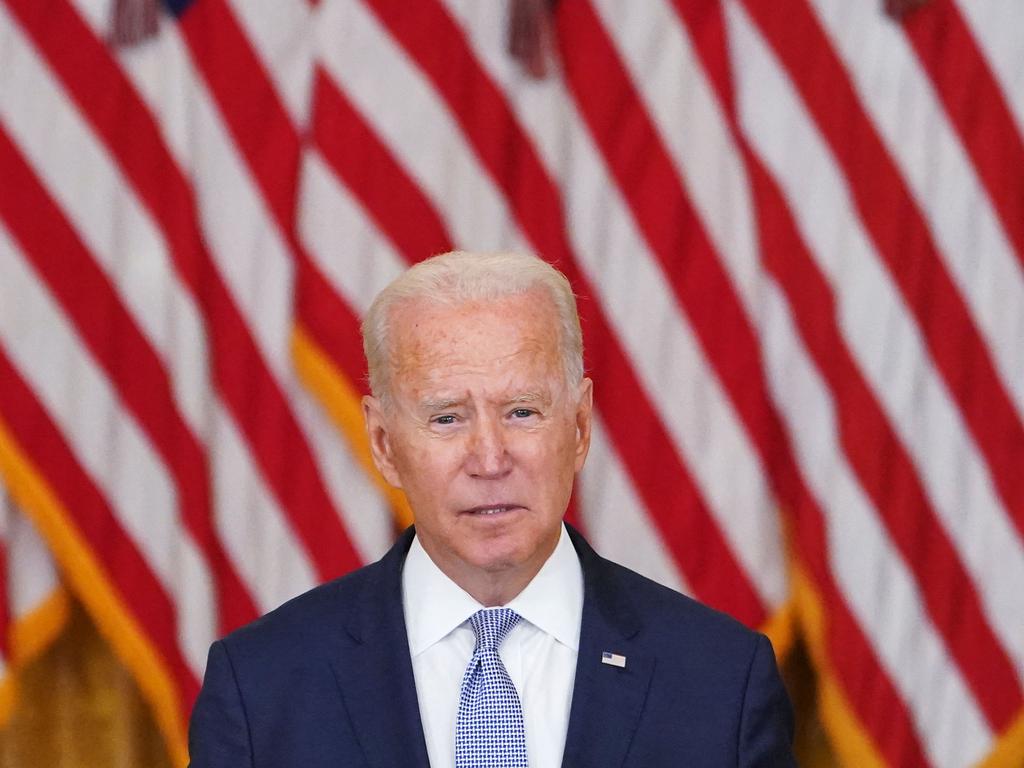


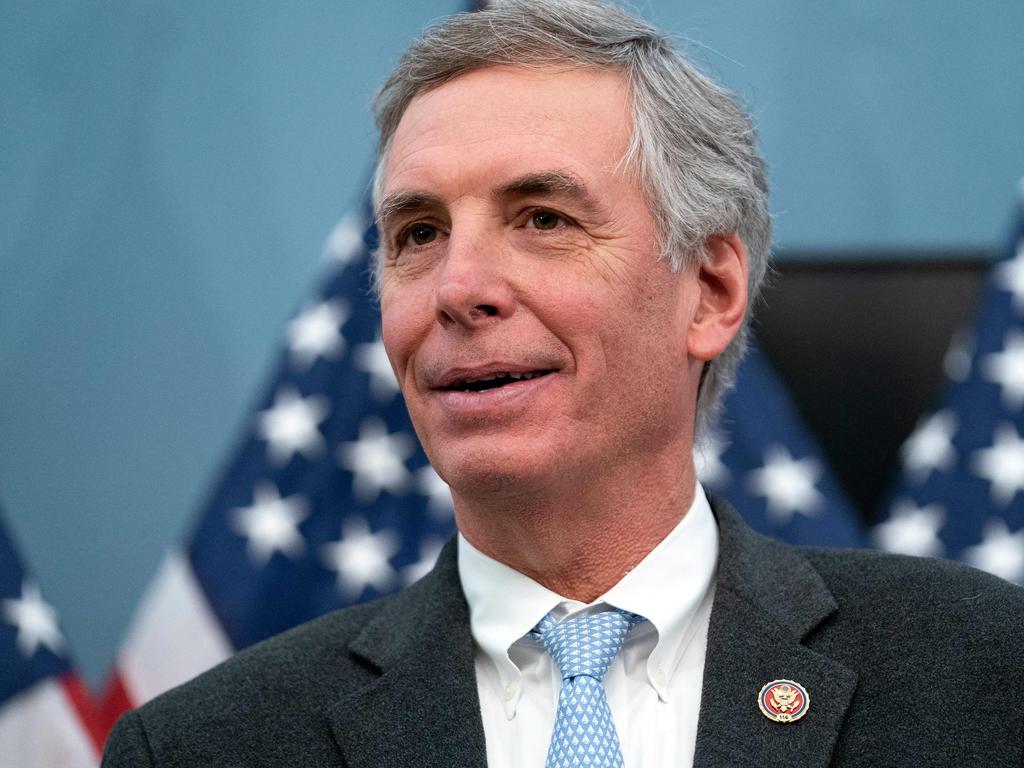
To join the conversation, please log in. Don't have an account? Register
Join the conversation, you are commenting as Logout